A State Trooper Put His Own Life At Risk To Rescue A Family Of Bears From A Dangerous Road
While wild animals typically do best in their natural surroundings, there are moments when a helping human hand can mean the difference between life and death. That was exactly what happened when a New Hampshire state trooper discovered a lone bear cub separated from its family.
What started as a simple rescue effort soon evolved into something far more moving. As officers cared for the vulnerable black bear, they uncovered a deeper story—one that touched hearts and highlighted the power of compassion. This little cub's path took an unexpected turn, all thanks to a few people who refused to give up on him.
Police Warned About Animal Crossings
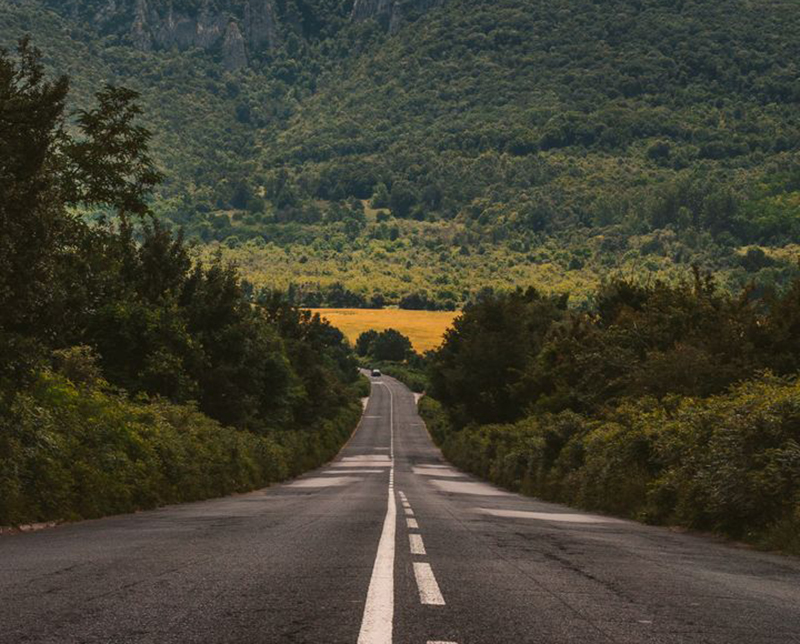
In busy city streets, you're most likely to spot animals on leashes. But in the quiet, rural setting of Bretton Woods, it's completely normal to see wildlife casually crossing the road.
Located in Carroll, New Hampshire, this forested town is a haven for native animals. The Carroll Police Department often reminds both residents and visitors to drive with caution, since moose and other wildlife tend to show up when least expected.
A Resident's Encounter With A Bear Family
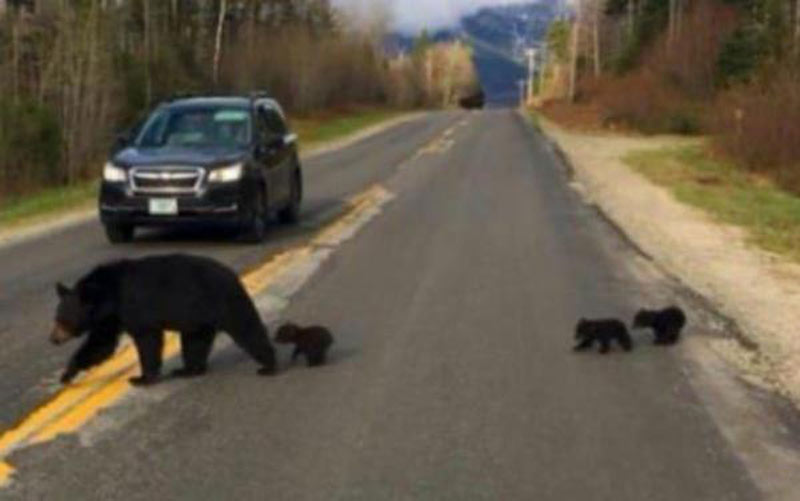
Sure enough, the police warnings proved accurate when a bear family was spotted crossing the road one spring afternoon. A motorist noticed them in the distance and came to a cautious stop, making sure not to interfere.
But something seemed off—the mother bear appeared to be having trouble keeping her cubs in line. Concerned, the driver made the smart decision to contact local authorities, sensing the animals might need help.
One Of The Cubs Was Falling Behind
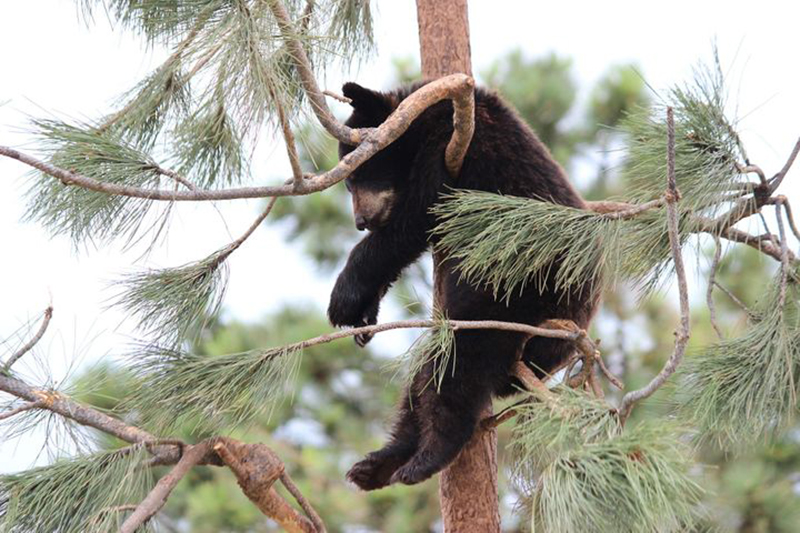
The North American Bear Center notes that newborn bear cubs are the smallest in proportion to their mother's size of any placental mammal. In those early weeks, their survival hinges entirely on their mother’s protection and care.
Although the cubs seen on the road that day weren’t newborns, they were still quite young—and far from ready to be on their own. Typically, bear cubs stay with their mother for about 18 months before becoming independent. So when one cub began falling behind the rest of the group, it raised immediate concern.
An Officer Arrived To Control The Traffic
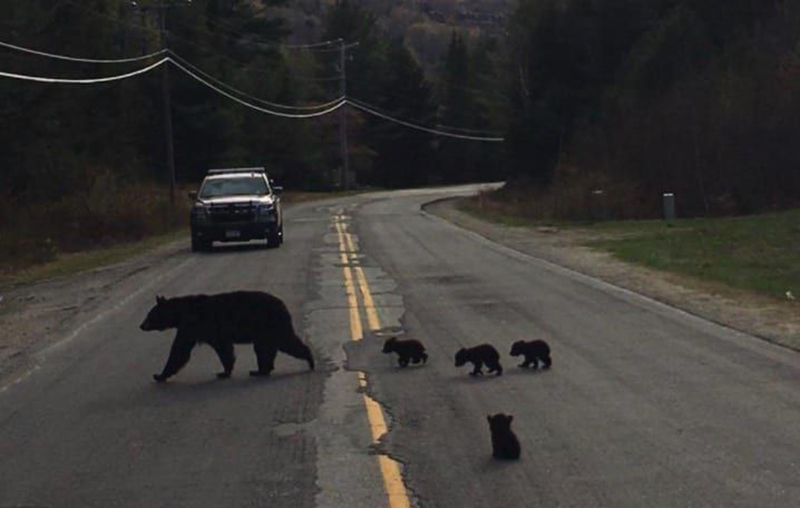
After the call came in, State Trooper Thomas Owens arrived to assess the situation. It didn't take long for him to notice that, while three cubs clung closely to their mother, one had fallen far behind—so weak it could barely move, lying nearly motionless in the middle of the road.
In the wild, mothers sometimes make heartbreaking decisions for the good of the group. It seemed this bear had begun to realize that her ailing cub might not survive—and that lingering too long could put her other cubs at risk.
The Odds Weren't Looking Good For This Cub
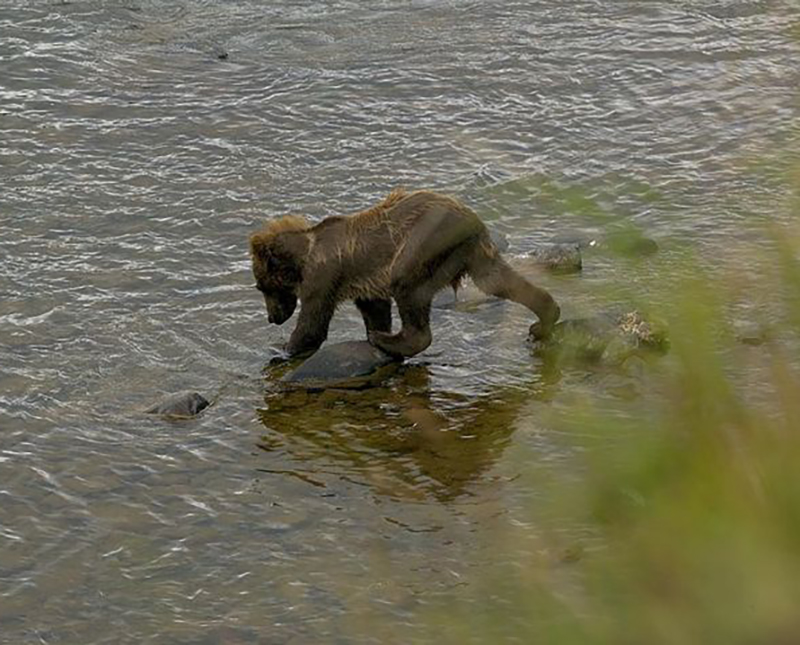
Wild animals don't have the luxury of veterinary care, so they’re left to face health challenges with only their instincts and resilience. The North American Bear Center notes that litters with more than three cubs often see reduced survival rates.
Given that the bear family Trooper Owens encountered had four cubs, it wasn’t entirely surprising that one was struggling. The mother likely recognized this too—intuitively understanding that not every cub would be strong enough to make it.
Waiting For Help To Arrive
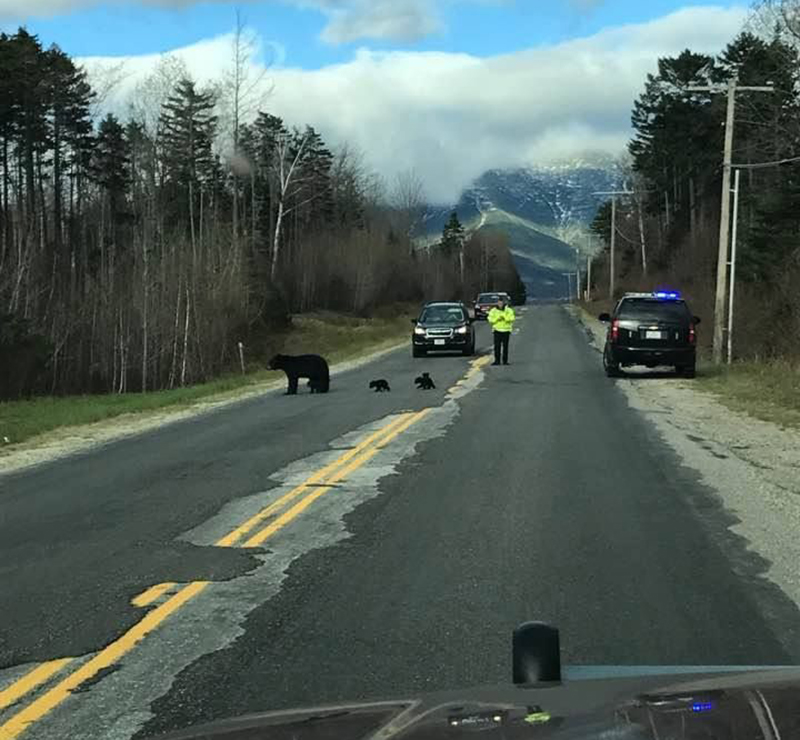
The officer began directing traffic around the bears, hoping that the weak cub would eventually be able to move on. When it became clear that the cub was utterly helpless, he knew he would need to contact professionals.
The mother bear moved on with her healthier cubs, keeping them safe from the growing crowd of humans around. Meanwhile, the state trooper contacted Fish and Wildlife Services to have them send out someone to help transport the cub.
Bringing The Cub To Safety
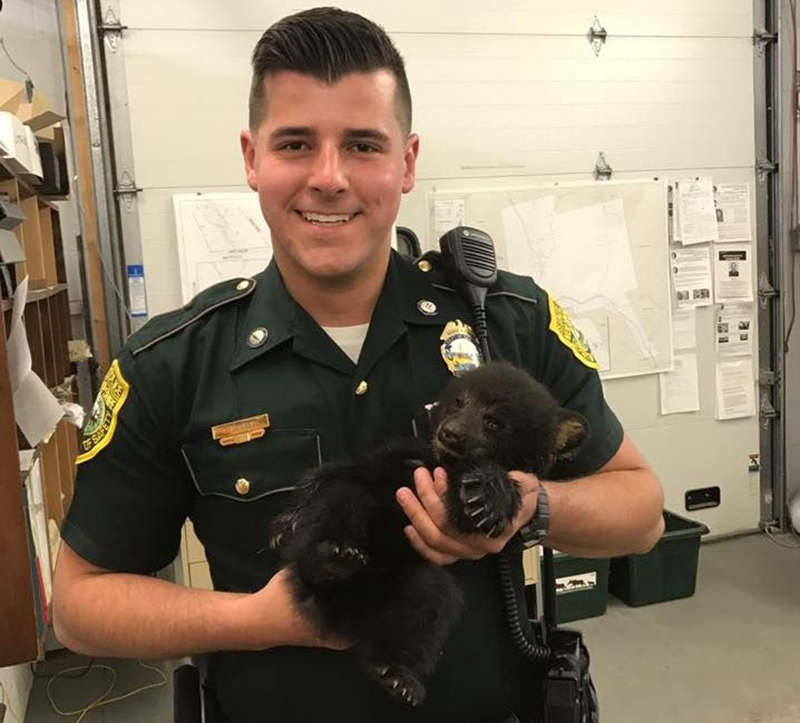
This photograph shows state trooper Thomas Owens holding the adorable little cub that was left behind. Since black bears have a mating season, babies are usually born in January -- meaning that this cub was probably around three months old.
Depending on how snowy the year is, parent bears will usually leave the den with their cubs for the first time in April. That's probably what this bear family was doing when the weak cub starting having trouble.
A Surprising Link Between Separate Events
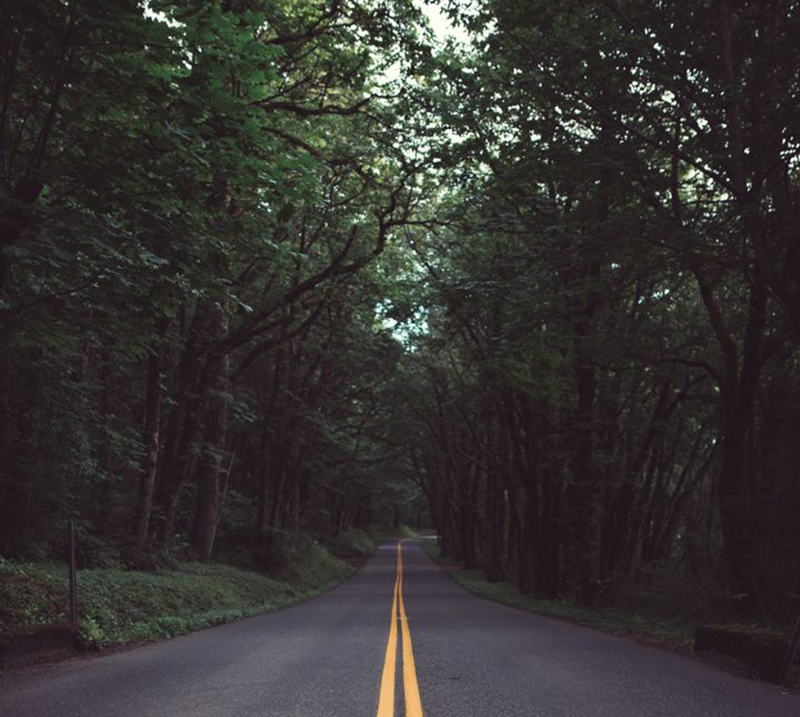
Once the bear cub was brought to safety, the police began evaluating what had happened. That's when they made a startling connection between this event and one that had happened within the past 24 hours.
Just the day prior, the police had rescued another little bear cub in the same town. A bear having a litter of four was unlikely, but was it possible that the cub from the day prior was a part of the same large litter?
The Stranded Cubs Were Related
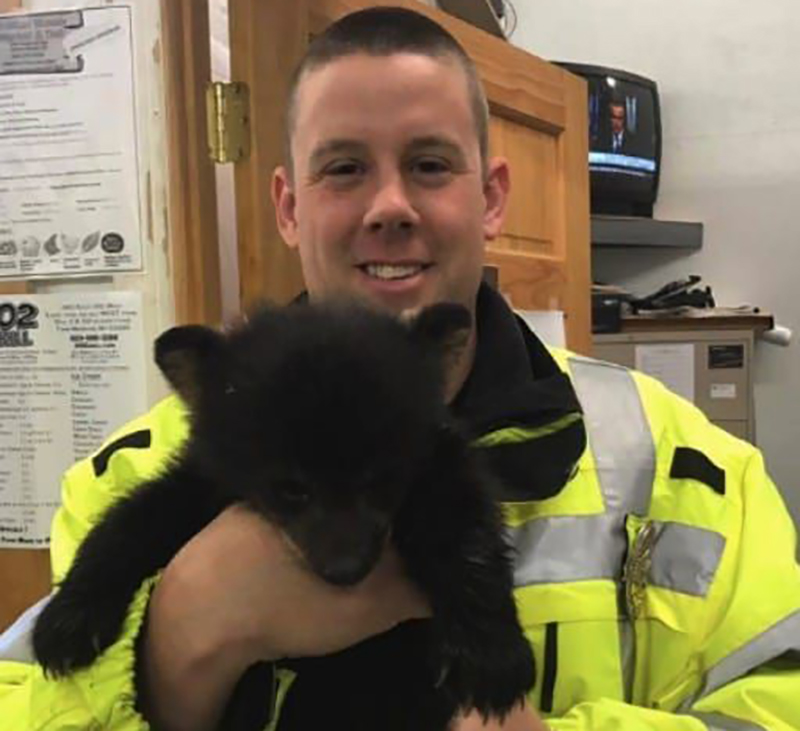
The Town of Carroll Police Department did some investigating and discovered that both cubs they had brought in were from the same mother bear. When it comes to delivering cubs, bears are similar to humans in terms of the number they have.
A female black bear will usually have one or two cubs in her first litter, and rarely more than three, according to the North American Bear Center. This mother bear nearly broke records by having quintuplets!
The Mother Bear Had No Choice
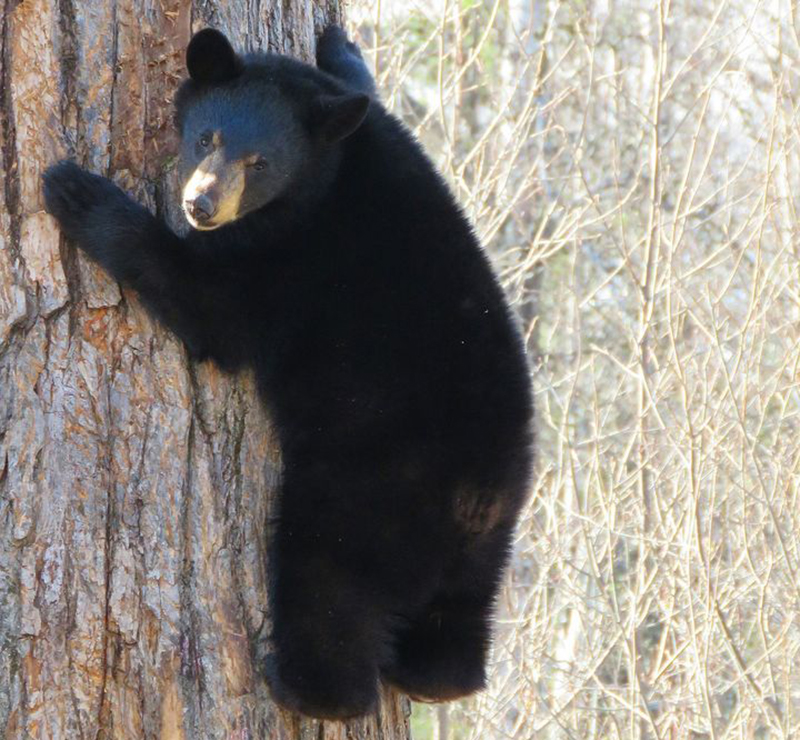
Being that having three bear cubs is risky, having five makes it all the more likely that at least one of the cubs will be sick and weak. Discovering that this mother bear had five cubs shed perspective on the situation.
Even though the mother had five cubs, she'd managed to keep them all warm in her den since January. Sadly, when they emerged in spring, it became clear that two of the cubs wouldn't make it, so the mother had to sacrifice them for the sake of her other three.
The Police Came To The Rescue
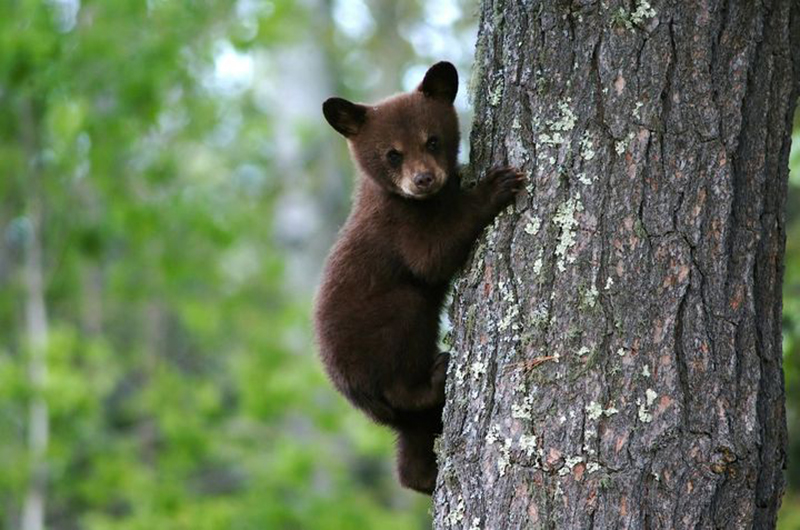
Fortunately for this mother bear, the police would be able to rescue her two sick cubs in ways that she couldn't. The Town of Carroll Police Department made arrangements to have both cubs taken in for rehabilitation.
With experts by their side and the advantage of science and medicine, their hope was that the cubs would become strong enough to return to the wild. Only time would tell if they'd be able to reunite with their mother and siblings, though.
Reuniting The Sibling Bears

The sibling bear cubs were reunited at a bear rehabilitation center in Lyme, New Hampshire. The first cub was sent there upon being found alone in the woods the day before police encountered the bear's family in the road.
The second cub was able to join its sibling shortly thereafter, meaning that neither had to fend without a family for long. The fact that these two weakling cubs were found within 24 hours of one another makes it seem like fate had stepped in.
Bear Cubs Thrive With Play
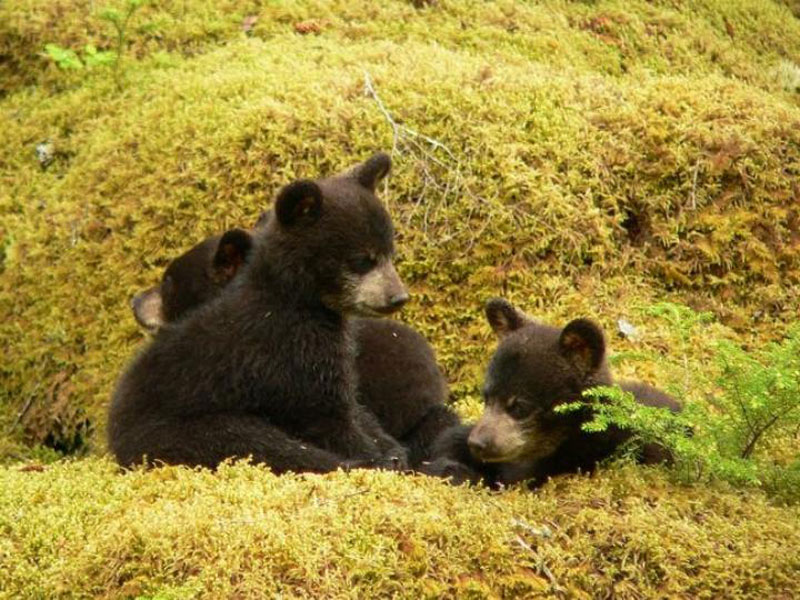
Not only is it significant that the runt cubs were able to reconnect because they are family, but also because they could be playmates. Similar to humans, bear cubs spend a lot of time playing.
Doing so is an important part of their development, especially since they are born so small and helpless. The North American Bear Center states the exact reason why bear cubs play so much is a mystery, but it may have to do with their brain development and cardiovascular fitness.
One Woman Caught The Bear Family On Camera
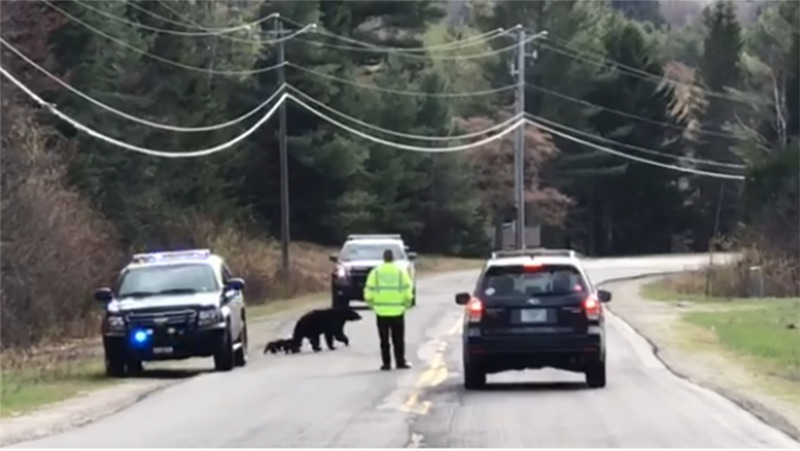
Jane Langmaid was one of the drivers headed down the road during the bear family's crossing. As you might expect, she whipped out her phone and started filming the amazing moment. In this screenshot from her video, you can see the three cubs trailing behind the mama bear.
They are headed back to the side of the road they just came from, where the fourth cub was struggling to walk. In the video, you can see the mother waver back and forth on the road, before finally leading her three healthy cubs on and away from their runt sibling.
The Concerned But Non-Aggressive Mother
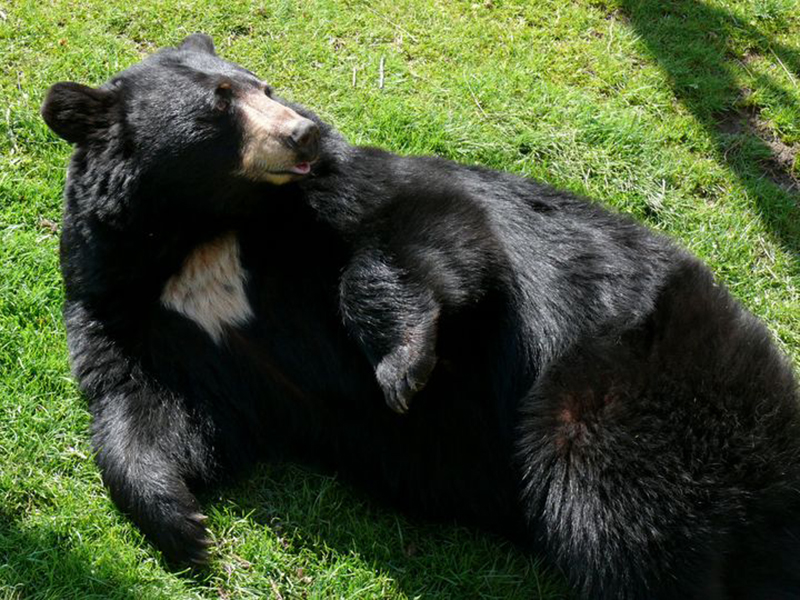
One of the most heartbreaking parts of the video is how unsure the mother seems to be. As soon as she realizes that her fourth cub didn't make it across the street, she heads back to the other side.
She goes back and forth repeatedly, with all three of her cubs following. Though the police officer is in close proximity to all of them, she doesn't show any aggression toward him. It's as though she knows that he's only there to help.
Uniquely Timid Black Bears
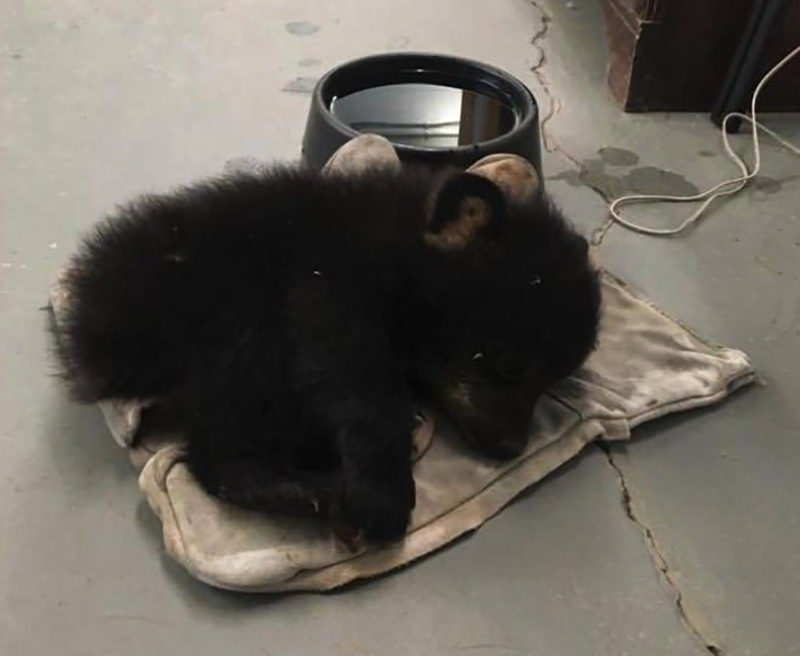
This image of one of the runt bear cubs saved by the police shows how calm black bears can be. Though this one is just a baby, adult black bears often resort to flight rather than fight, meaning they tend to be less dangerous than the notorious grizzly bear.
Dr. Lynn Rogers of the North American Bear Center states that even black bear mothers are reluctant to attack in defense of their cubs. He asserts that black bears' ability to climb trees has always provided an effective way of survival, and that those timid genes were passed on to today's black bears.
The Beautiful Place These Bears Call Home
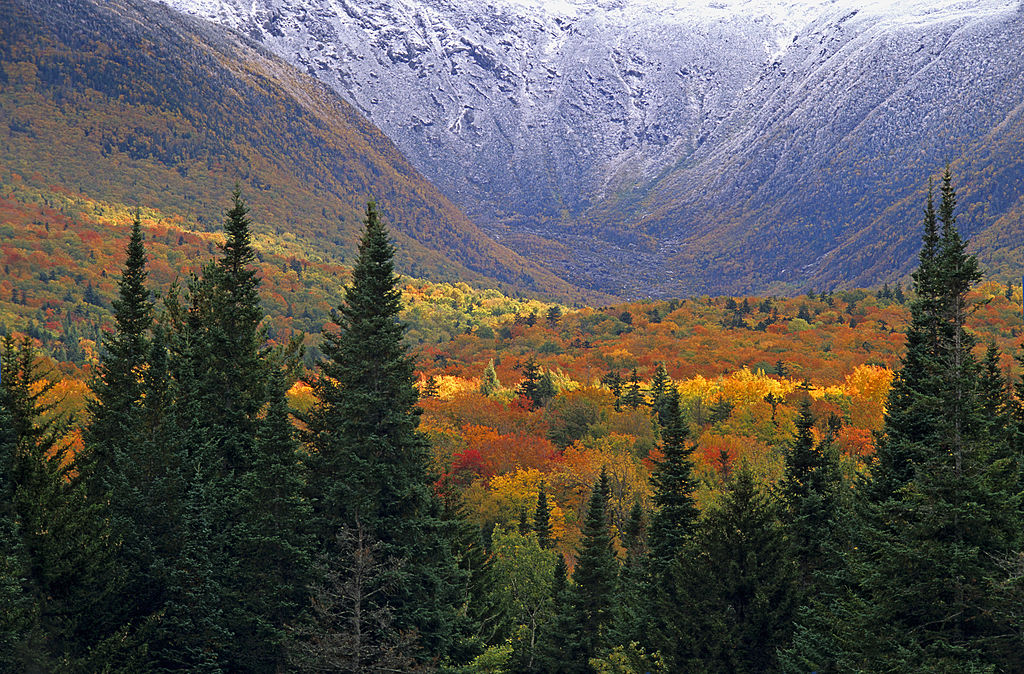
The family of bears was roaming around the gorgeous White Mountain National Forest, which extends across the border of Maine and New Hampshire. Sweeping mountain views, snowy hilltops, and thick trees with vibrant leaves make this spot seem like paradise.
In addition to the black bear and moose, this land is home to bald eagles, coyotes, bobcats, gray and red foxes, mink, porcupines, and so many more wildlife species. It boasts more than 750,000 acres of protected wilderness.
Learning To Survive On Their Own

Like many young mammals, black bears typically learn how to function as adults from their mother. Since the police officers were able to save them from being abandoned, it's up to the black bear rehabilitation center to prepare them for life in the woods.
Many have been touched by the heartwarming story of the officers who have given the runt bear cubs a second chance. Several people left comments on the police department's Facebook page thanking them for rescuing the bears.
Hope That They'll One Day Reunite With Their Family

Those following the story remained hopeful that the bears will one day reunite with their family. While the officers weren't able to confirm that the mother bear and her healthy three cubs were found, they did have one piece of good news.
One woman commented to ask whatever happened to the baby black bears that the officers had rescued. The Town of Carroll Police Department wrote back on their Facebook page, saying that they were successfully released into the wild after being rehabilitated.
Follow our brand for more content like this









